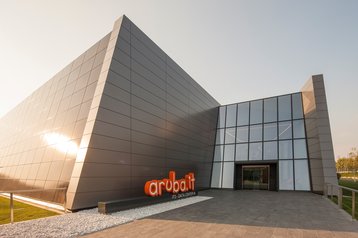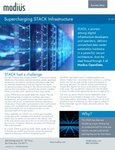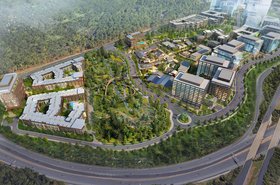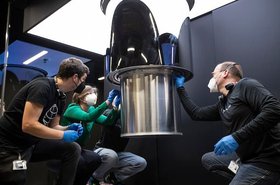Italian cloud provider Aruba is working with academics at the University of Pisa to develop two machine learning algorithms which could help optimize the performance of cloud resources, saving energy and cutting costs in the process.
The company is working with the university’s Department of Information Engineering on a two-year project to develop a solution for load management on cloud platforms.
Cloud providers are under increasing pressure from regulators and customers to show that their data centers operate in an efficient manner to help organizations meet their net-zero targets.
Can machine learning make the cloud more efficient?
The load management system will be based on the prediction of the resources used by virtual machines (VMs).
Predictions will be based on the analysis of historical data relating to VMs and, through the development of specific algorithms, will aim to optimize the energy consumption of hardware, while guaranteeing the requirements of VM users.
Being able to optimize the use of cloud resources - for example, by predictively modulating the amount of hardware as per the specific needs of customers - can reduce consumption when not needed and as a result, offer the service at a better cost, Aruba believes.
During the project, two different machine learning algorithms will be developed; a dynamic VM-profiling algorithm to outline certain profiles based on the resources used historically, and an algorithm for managing VMs that exploits profiles to manage their execution on the different hardware that make up the cloud platform. It is hoped the latter will help optimize energy consumption while guaranteeing performance.
An OpenStack solution for cloud resource monitoring
It is hoped the project will make it possible to develop an integrated solution for virtual machine management on a cloud platform based on load prediction, and to implement a proof-of-concept based on open-source platform OpenStack for field experimentation across different use cases
This could eventually allow users to move loads between OpenStack nodes on a predictive and historical basis to optimize the use of resources on the nodes. For cloud data center operators, it could help guarantee adequate resources for client requests and optimize the use of servers, and enable them to set up stand-by computation nodes in OpenStack clusters to be activated according to load distribution needs.
Daniele Migliorini, head of engineering at Aruba, described the partnership as a “significant step towards innovation in the practical application of machine learning within the cloud ecosystem.”
Migliorini said: “This partnership reflects our ongoing commitment to technology collaboration with Italian academic institutions of excellence, in order to offer cutting-edge solutions and meet the rapidly evolving needs of the market.
“We are confident that the synergy between our experience in the sector and the expertise of the University of Pisa will result in solutions that will shape the future of the cloud and encourage benefits that can be derived from artificial intelligence, optimizing the use of energy in the data center sector with a view to long-term sustainability."
Carlo Vallati, from the University of Pisa’s Department of Information Engineering and scientific head of the collaboration, said: "The opportunity to collaborate with a large company like Aruba allows our department to work on frontier topics in the area of cloud computing technologies.
“This gives us the opportunity to work on innovative solutions, with a potentially significant impact on areas such as energy efficiency and environmental sustainability, which are crucial in the development of the cloud of the future."







